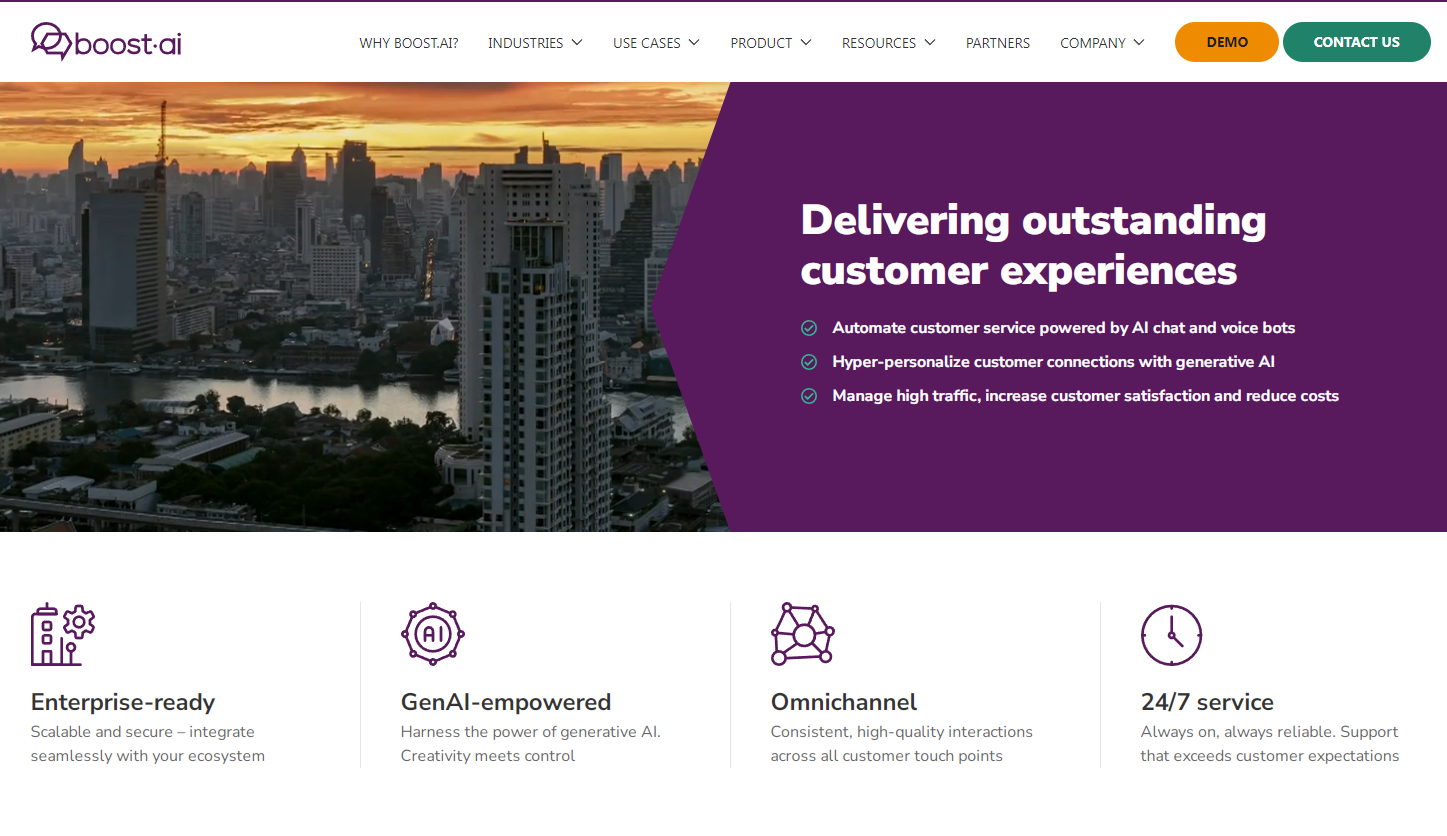











What is Boost.AI?
Boost.AI is designed to enhance customer interactions by automating and improving communication through various channels, such as chat, messaging, and voice. Boost.AI aims to revolutionize customer interactions and drive business efficiency through advanced AI technology.
Key Features and Aspects:
1.Natural Language Understanding (NLU): Boost AI uses advanced NLU to understand and interpret user queries accurately, enabling it to provide relevant and precise responses.
2.Multi-Channel Support: The AI can interact with customers across multiple platforms, including web chat, mobile messaging apps (like WhatsApp and Facebook Messenger), and voice assistants.
3.Personalization: It leverages customer data to provide personalized interactions, enhancing user experience by tailoring responses based on past interactions and preferences.
4.Integration with Business Systems: Boost AI can be integrated with various backend systems like CRM, ERP, and other business applications, allowing it to access and provide real-time information to customers.
5.Scalability:The AI is designed to handle large volumes of interactions, making it suitable for businesses of all sizes, from small enterprises to large corporations.
6.Automation and Efficiency:It automates routine tasks and queries, freeing up human agents to handle more complex issues and improving overall efficiency in customer service operations.
7.Analytics and Insights:Boost AI provides detailed analytics and insights into customer interactions, helping businesses understand customer behavior and improve their services.
8.Easy Training and Deployment:The platform offers tools for easy training and deployment of AI models, allowing businesses to quickly set up and customize the AI to meet their specific needs.
Target Audience:
1.Customer Service Departments: Businesses looking to enhance their customer service operations by automating repetitive tasks and improving response times.
2.E-commerce and Retail: Companies aiming to provide instant support and personalized recommendations to online shoppers, thereby improving the shopping experience and boosting sales.
3.Financial Services:Banks, insurance companies, and other financial institutions that require efficient handling of customer queries, transactions, and support.
4.Telecommunications:Telecom companies that need to manage high volumes of customer interactions related to billing, technical support, and service inquiries.
5.Healthcare:Healthcare providers and insurers looking to offer instant support, appointment scheduling, and information dissemination to patients and clients.
6.Utilities and Public Services:Utility companies and public service providers seeking to improve customer engagement and support through automated systems.
7.Travel and Hospitality:Airlines, hotels, and travel agencies aiming to offer seamless customer support and booking assistance.




